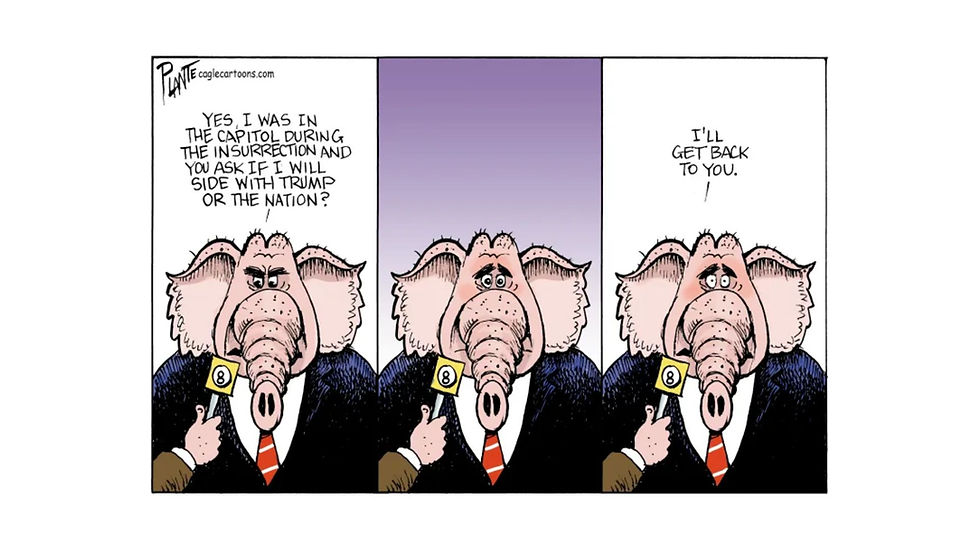Let's Talk About Teen Mental Health
- Sree Sreenivasan

- Jun 3, 2023
- 4 min read
Updated: Jun 6, 2023
Anyone with teens in their lives — parents, grandparents, uncles/aunts — should pay attention.

I asked Substack’s AI tool to generate an image about “teen mental health” and this is one of many it created in seconds. This person doesn’t exist and is entirely made up by AI; and note the weird appearance of the eyes (a symptom of AI art).
(This is the opening essay from this week's edition of my Sunday Note, which is brought to you by Armory Square Ventures and produced with Zach Peterson.)
WE ARE IN THE MIDST OF TEEN MENTAL HEALTH CRISIS. It’s happening right now. Our children, our grandchildren, our nieces and nephews, our neighbors, are not “at risk,” they are living it.
Rhetorically, social media has become the “violent video games and movies” of the modern era. For decades, lazy thinkers everywhere galvanized around violence in media as a key motivator behind depression, crime, and so many other social ills. Now, it’s social media. If someone is depressed, it’s because of social media. When someone shoots up a school or a Walmart, it’s social media at the center of it.
The key difference here is that social media’s existence almost certainly is to blame for so many awful things in our world. Social media is contributing to declines in mental health, and increases in self-harm, and is the radicalization engine of choice for any group trying to radicalize people.
The toll social media use is taking on young people is massive, and it does not appear that the potential benefits of community and shared interests are enough to outweigh the negatives. The outright hate and viciousness are enough for anyone, but body image issues, lifestyle emulation, and other things are driving a crisis that parents and educators are just not able to handle. It’s gotten to the point where school districts, counties, and some cities are suing the social media giants they see as at fault.
From Marianna McMurdock at The74:
Algorithms and platform design have “exploited the vulnerable brains of youth, hooking tens of millions of students across the country into positive feedback loops of excessive use and abuse of Defendants’ social media platforms,” Seattle Public Schools claimed in the first suit filed this January. Districts in Washington, Oregon, Arizona, New Jersey, California and Florida, Alabama, as well as one Pennsylvania county say tech companies intentionally target young users, exacerbating depression, anxiety, tech addiction and self-harm, straining learning and district finances. But the legal fight, whether tried or settled, will not be easy, outside counsel and at least one district leader said. “We don’t think that this is a slam dunk case. We think it’s going to be an uphill battle. But our board and I believe that this is in the best interest of our students to do this,” said Andi Fourlis, superintendent of Arizona’s largest district, Mesa Public Schools. “It’s about making the case that we need to do better for our kids.”
U.S. Surgeon General Dr. Vivek Murthy recently issued an advisory on social media use and teen mental health, and it’s clear that the case against social media is overwhelming. Whether that will hold up in any court is another matter altogether. After all, the platforms are just that — platforms. Their argument is and will be the same as it is with disinformation, racism, conspiracy theories, and most everything else: We just provide a place to publish and create, we don’t do the publishing and creating, you do.
This is on the second page of the advisory:
More research is needed to fully understand the impact of social media; however, the current body of evidence indicates that while social media may have benefits for some children and adolescents, there are ample indicators that social media can also have a profound risk of harm to the mental health and well-being of children and adolescents. At this time, we do not yet have enough evidence to determine if social media is sufficiently safe for children and adolescents.
It’s striking that the system is backward. Rather than having something in R&D, working out the kinks and bugs before deployment, these products are being used by billions of people. They have been iterated upon and optimized for attention since day one. Just now we’re seriously talking about their safety, and the verdict that we are pretty sure it’s not good.
Young women are particularly at risk, their peers know it, their parents are worried about it, and the social media giants are very much aware of the whole thing. And, I would go so far as to say the effects of social media use on adults isn’t much better.
So, where do we go from here? My friend Mary C. Curtis (@mcurtisnc3) just interviewed Julie Scelfo (@juliescelfo) of Get Media Savvy about what is needed from policymakers and the public to tackle the youth mental health crisis and rebuild our civic fabric. Check out her fab podcast.
My friends Vivek Wadhwa and Alex Salkever wrote a book on this topic in 2018, long before enough people were paying attention. Dr. Dean Ornish called it “the most important book ever written about one of the most significant aspects of our lives — the consequences of our addiction to online technology and how we can liberate ourselves and our children from it." Read “Your Happiness Was Hacked: Why Tech Is Winning the Battle to Control Your Brain--and How to Fight Back.”
One immediate step families can take is in Dr. Murthy’s advisory:
“Children and adolescents who spend more than 3 hours a day on social media face double the risk of mental health problems including experiencing symptoms of depression and anxiety.”
I bet if any parent or grandparent knew that stat, they’d do all they could to urgently cut down those hours.


Comments